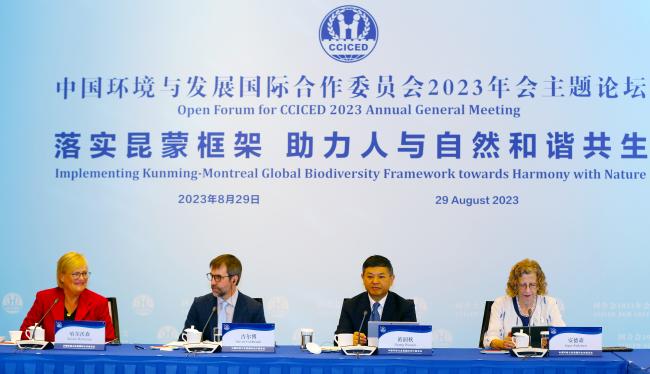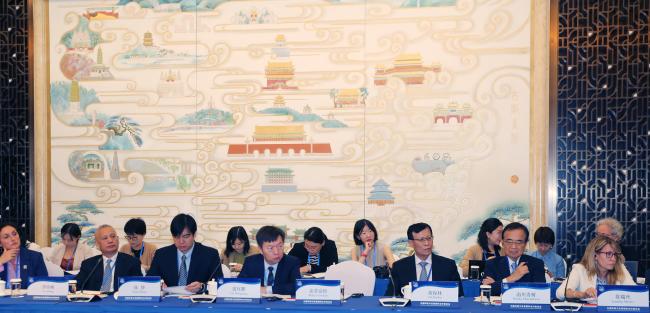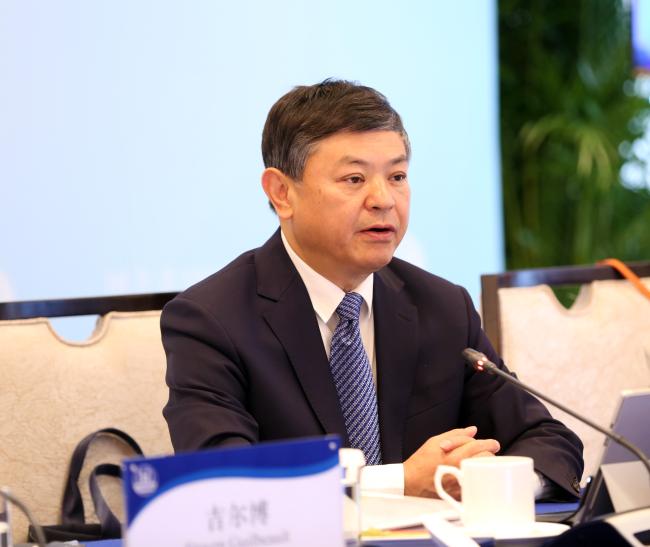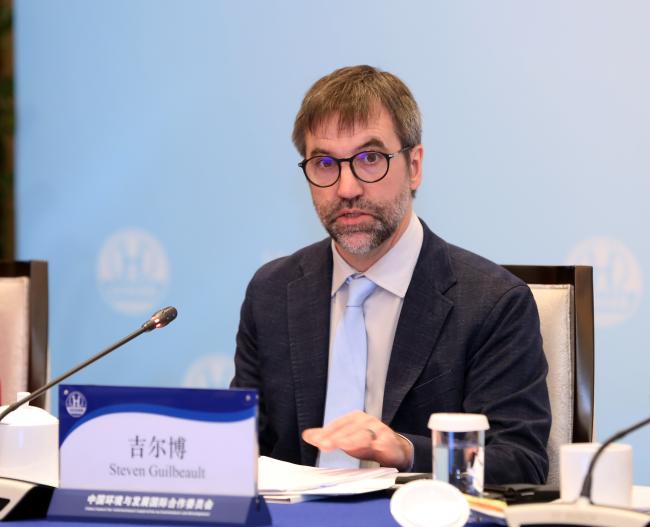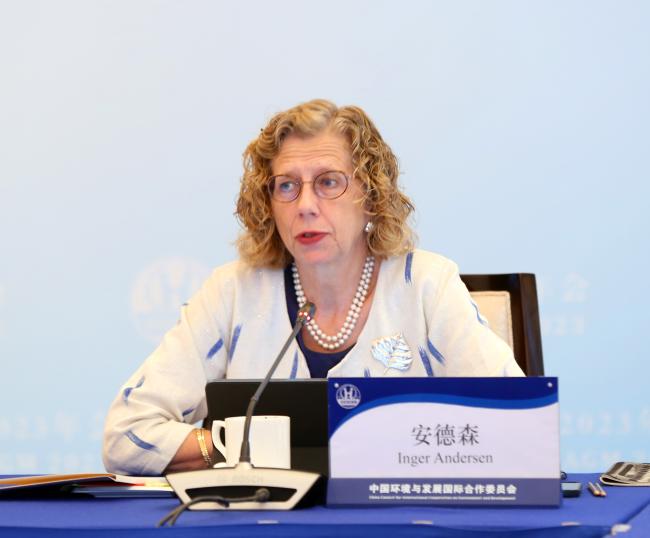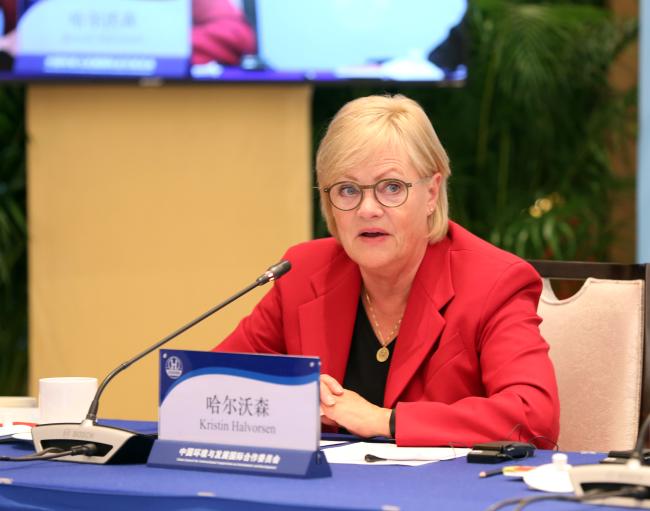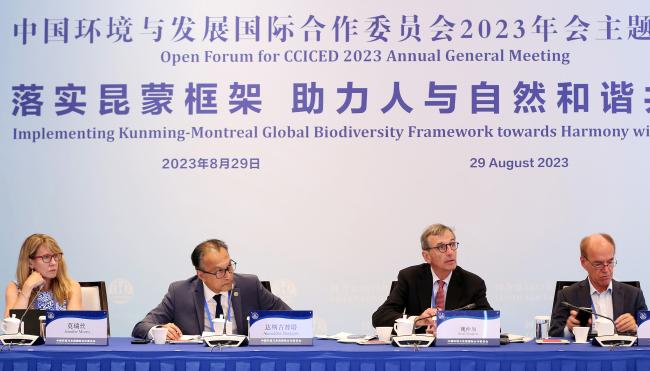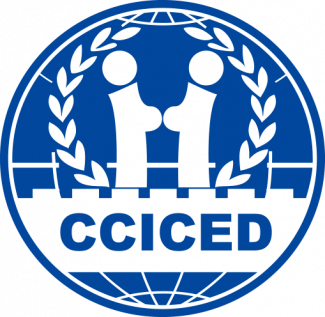The second day of the 2023 Annual General Meeting (AGM) of the China Council for International Cooperation on Environment and Development (CCICED) saw a packed agenda that included six thematic Open Forum sessions and an evening policy research dialogue to finalize policy recommendations to the Chinese government.
Discussions on implementation of the Kunming-Montreal Global Biodiversity Framework lauded the landmark agreement for setting global targets that are not only ambitious, but “achievable and measurable.” Many called for early and accelerated action to implement national biodiversity strategy and action plans in the remaining seven years, with China announcing the launch of a policy study on how to achieve the 30x30 target domestically and support other nations to do the same.
The Open Forum on Building Green Consensus and Empowering Financial Innovation discussed diverse options for decoupling economic growth from unsustainable natural resource use, including through policy incentives to boost investments in green industries and avoid protectionist policies. [to be updated based on transcript]
With participation of a global online audience, the Open Forum on Synergizing the Efforts on Climate Change and Forging the Path to Green Prosperity, underscored both opportunities as well as some tough policy choices that underpin the transition to a low-carbon future. There were calls for increased South-South cooperation for a green transition, building on China’s experience.
Other Open Forum sessions addressed the following topics:
• Integrating land and ocean to promote collaborative governance;
• Building a green Belt and Road Initiative (BRI) to advance global South-South cooperation; and
• Driving high-quality industrial development through green and digital dual transformation.
During the policy research dialogue in the evening, delegates reviewed reports from the six Forums and considered the draft policy recommendations to be forwarded to the Chinese government.
In their recommendations, CCICED members recognize China’s commitment to accelerating green and low-carbon growth and the positive momentum unleashed at the international level. They encourage the Chinese government to, inter alia:
• Maintain strategic determination and firmly implement the “dual-carbon” goal;
• Continue to optimize the industrial structure and promote carbon reduction and pollution reduction synergies;
• Promote the high-quality development of industries and cities through dual digital and green transformations;
• Enhance the green financial system to support green and low-carbon transformation;
• Build a sustainable blue economy through land–ocean integration and construct resilient river basins; and
• Build sustainable supply chains and contribute to global low-carbon transformation.
Specific actions to accelerate implementation of the Kunming-Montreal Global Biodiversity Framework outlined in the recommendations include:
Establishing a biodiversity expert group to facilitate engagement, coordination, and implementation at the national and international levels;
- Exploring the development and piloting of innovative green finance mechanisms and products, such as debt-for-nature swaps.
- Reallocating direct budget transfers that are harmful to biodiversity to optimize the impact of existing funds; and
- Developing a systematic and comprehensive methodology to assess the ecological and environmental impacts of subsidy policies, taking agriculture, forestry, and fisheries as pilots.
All ENB photos are free to use with attribution. For CCICED 2023, please use: Photo by IISD/ENB | Franz Dejon
CCICED Open Forum on Moving Towards Nature

Zhou Guomei, Deputy Secretary General of CCICED and Director General, International Cooperation Department, Ministry of Ecology and Environment, China

Lei Hongpeng CCICED Special Advisor, Global Director, Climate and Chief Representative of China, Children's Investment Fund Foundation
CCICED Open Forum on Mainstreaming Biodiversity Conservation
CCICED Open Forum on Investing in Nature

Jo Tyndall, CCICED member and Director, Environment Directorate, Organization for Economic Co-operation and Development (OECD)

Nathalie Bernasconi-Osterwalder, Interim Co-President and Co-CEO, International Institute for Sustainable Development (IISD)
CCICED Open Forum on Climate Change
CCICED Open Forum on Building Green Consensus and Empowering Financial Innovation

L-R: Zhaohui Huang, CEO, CICC; Liu Shijin, Chinese Chief Advisor, CCICED and Former Deputy President, Development Research Center of the State Council, China; and Manish Bapna, CCICED Member and President and CEO, Natural Resources Defense Council

Wengsheng Peng, CCICED Finance SPS Co-Lead and Dean, China International Capital Corporation (CICC) Global Institute
Policy Research Dialogue

Gong Ke, SPS on Promoting Digitalization and Green Technologies for Sustainable Development and Executive Director of the Chinese Institute of New Generation Artificial Intelligence Development Strategies

Zhang Jianyu, SPS on Sustainable Development Innovation Mechanism Boosted by the Belt and Road Initiative, and Executive President, BRI Green Development Institute (BRIGDI)

Li Xiaojiang, CCICED Special Advisor; Chinese Leader, SPS on High-Quality Development of River Basins and Adaptation to Climate Change

